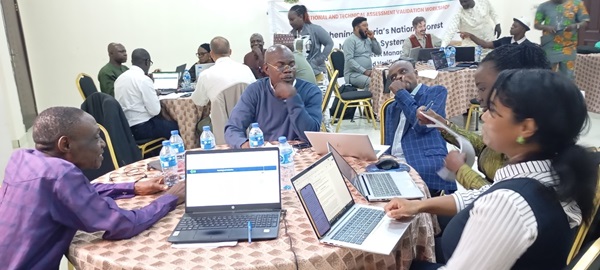
The Federal Government of Nigeria, in partnership with the Food and Agriculture Organisation (FAO) of the United Nations and the Global Forest Observations Initiative (GFOI), has launched a new phase of collaboration under the AIM4Forests project.
The initiative aims to enhance Nigeria’s forest monitoring capabilities as a foundational step toward sustainable forest management and access to carbon financing opportunities.
The project was formally introduced during a three-day validation workshop held in Abuja from July 21 to 23, 2025. The workshop follows months of technical consultations with the FAO Country Office and Nigeria’s department of forestry under the Federal Ministry of Environment.
The AIM4Forests project seeks to address institutional and technical gaps in forest monitoring, strengthen the country’s measurement, reporting and verification (MRV) system, support the implementation of REDD+ (Reducing Emissions from Deforestation and Forest Degradation) and ensure alignment with international climate reporting and carbon market standards.
Declaring the workshop open, Nigeria’s National REDD+ coordinator, Dr. Moses Ama stressed the critical importance of multi-stakeholder collaboration in achieving climate and forest conservation goals. “As the UNFCCC focal point, the National Council on Climate Change, along with MDAs, state-level forestry institutions, academia and civil society, must all contribute meaningfully to this process,” he said. “This is not just about monitoring forests. It’s about shaping a sustainable future.”
The workshop focused on evaluating Nigeria’s National Forest Monitoring System (NFMS) using FAO’s NFMS assessment tool. Discussions centered on identifying institutional and operational gaps in areas such as forest data management, inter-agency coordination and verification processes. Furthermore, Nigeria’s MRV system was assessed against the ART TREES (Architecture for REDD+ Transactions – The REDD+ Environmental Excellence Standard) an international benchmark that measures carbon credit readiness.
The findings from the workshop will form the basis for a robust NFMS improvement roadmap, to be developed in collaboration with the Federal Department of Forestry. This roadmap will guide the country’s efforts under the AIM4Forests project, supporting the integration of forest monitoring into broader national planning frameworks.
In parallel, GFOI led high-level consultations with ministerial stakeholders and mapped out key NFMS actors, paving the way for Nigeria’s engagement in the country-led planning process. This process aims to institutionalise the NFMS as a routine government function and ensure long-term sustainability.
FAO’s Representative in Nigeria and to ECOWAS, Dr. Hussein Gadain emphasised the strategic importance of credible forest data. “A strong institutional foundation is essential for accurate, transparent and efficient forest monitoring,” he noted. “This assessment helps identify both the gaps and the opportunities for Nigeria to improve its national forest monitoring and MRV capacity.”
The workshop drew wide participation from federal and state government agencies, forestry experts, academic researchers, civil society actors and development partners. Participants brought expertise in fields including forest policy, geospatial analysis, remote sensing, data collection, climate finance and environmental governance.
As Nigeria works toward achieving its Nationally Determined Contributions (NDCs) and engaging with international climate mechanisms, this collaboration with FAO and GFOI is seen as a timely and strategic move to reinforce forest conservation, improve climate resilience and unlock potential climate finance benefits.


